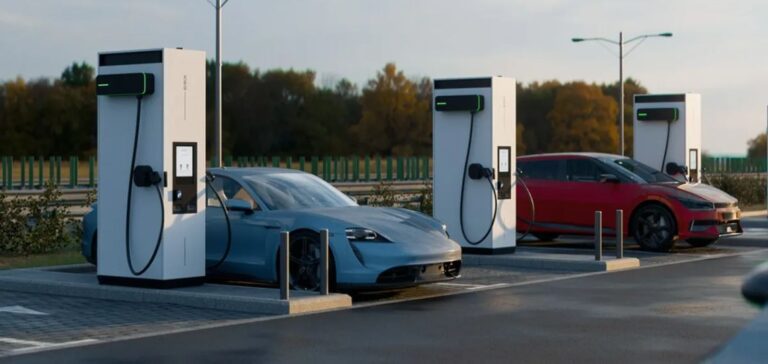Four major European electric vehicle charging operators — Germany’s Ionity, the Netherlands’ Fastned, France’s Electra and Italy’s Atlante — announced on Wednesday the launch of a shared interface enabling electric vehicle drivers to access each operator’s charging stations without switching apps. The platform, named Spark Alliance, will bring together over 11,000 ultra-fast charging stations across Europe by this summer.
The solution aims to simplify a currently fragmented process where drivers must download multiple apps and create separate accounts for each operator. The initiative will apply to stations offering a minimum power output of 150 kilowatts, enabling a recharge in approximately fifteen minutes, especially along major European highways.
An interoperable network in 25 European countries
The initiative will cover 25 European countries, including the United Kingdom, Germany, Italy, Switzerland, Portugal, the Netherlands and Belgium. Each operator will maintain its own pricing structure, but users will be able to recharge across the network without additional fees when using another member’s app, according to Aurélien de Meaux, Chief Executive Officer of Electra.
Spark Alliance will not involve cross-shareholding among the companies, with all four operators remaining capitalistically independent. The declared aim is to reinforce technical cooperation without compromising pricing competition or commercial strategies.
Reducing third-party intermediaries
Currently, platforms such as Charge Map offer some degree of interoperability, though typically with added fees. With Spark Alliance, the companies hope to address this limitation and better structure a rapidly growing market without relying on intermediaries.
The initiative aligns with recommendations from the report on European competitiveness authored by Mario Draghi, former President of the European Central Bank, which advocates for increased collaboration among European enterprises. The American company Tesla, a major player in ultra-fast charging, will not participate in the initiative. The brand remains outside this European project amid consumer criticism related to the political positioning of its CEO Elon Musk.






















